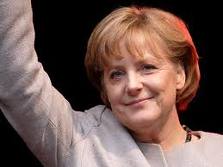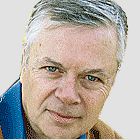BERLIN (AFP) – Germany’s attempt to create a multi-cultural society has failed completely, Chancellor Angela Merkel said at the weekend, calling on the country’s immigrants to learn German and adopt Christian values.
Merkel weighed in for the first time in a blistering debate sparked by a central bank board member saying the country was being made “more stupid” by poorly educated and unproductive Muslim migrants.
“Multikulti”, the concept that “we are now living side by side and are happy about it,” does not work, Merkel told a meeting of younger members of her conservative Christian Democratic Union (CDU) party at Potsdam near Berlin.
“This approach has failed, totally,” she said, adding that immigrants should integrate and adopt Germany’s culture and values.
“We feel tied to Christian values. Those who don’t accept them don’t have a place here,” said the chancellor.
“Subsidising immigrants” isn’t sufficient, Germany has the right to “make demands” on them, she added, such as mastering the language of Goethe and abandoning practices such as forced marriages.
Merkel spoke a week after talks with Turkish Prime Minister Recep Tayyip Erdogan in which they pledged to do more to improve the often poor integration record of Germany’s 2.5-million-strong Turkish community.
Turkish President Abdullah Gul, in a weekend interview, also urged the Turkish community living in Germany to master the language of their adopted country.
“When one doesn’t speak the language of the country in which one lives that doesn’t serve anyone, neither the person concerned, the country, nor the society,” the Turkish president told the Suedeutsche Zeitung.
“That is why I tell them at every opportunity that they should learn German, and speak it fluently and without an accent. That should start at nurseries.”
German President Christian Wulff was due for a five-day visit to Turkey and talks with the country’s leaders on Monday.
The immigration debate has at times threatened to split Merkel’s conservative party, and she made noises to both wings of the debate.
While saying that the government needed to encourage the training of Muslim clerics in Germany, Merkel said “Islam is part of Germany”, echoeing the recent comments of Wulff, a liberal voice in the party.
Horst Seehofer, the leader of the CDU’s Bavarian sister party, CSU, who represents the right-wing, recently said Germany did not “need more immigrants from different cultures like the Turks and Arabs” who are “more difficult” to integrate.
While warning against “immigration that weighs down on our social system”, Merkel said Germany needed specialists from overseas to keep the pace of its economic development.
According to the head of the German chamber of commerce and industry, Hans Heinrich Driftmann, Germany is in urgent need of about 400,000 engineers and qualified workers, whose lack is knocking about one percent off the country’s growth rate.
The integration of Muslims has been a hot button issue since August when a member of Germany’s central bank sparked outrage by saying the country was being made “more stupid” by poorly educated and unproductive Muslim migrants with headscarves.
The banker, Thilo Sarrazin, has since resigned but his book on the subject — “Germany Does Itself In” — has flown off the shelves, and polls showed considerable sympathy for some of his views.
A recent study by the Friedrich Ebert Foundation think tank showed around one-third of Germans feel the country is being “over-run by foreigners” and the same percentage feel foreigners should be sent home when jobs are scarce.
Nearly 60 percent of the 2,411 people polled thought the around four million Muslims in Germany should have their religious practices “significantly curbed.”
Far-right attitudes are found not only at the extremes of German society, but “to a worrying degree at the centre of society,” the think tank said in its report.
“Hardly eight weeks have passed since publication of Sarrazin’s theory of decline, and the longer the debate continues to a lower level it falls,” the weekly Der Spiegel commented Sunday.










